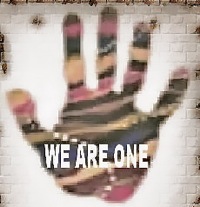Prejudice
A prejudice is a preconceived belief, opinion, or judgment toward a group of people or a single person because of race, social class, gender, ethnicity, sexual orientation, age, disability, political beliefs , religion, line of work or other personal characteristics. It also means a priori beliefs (without knowledge of the facts) and includes "any unreasonable attitude that is unusually resistant to rational influence."[1] Although positive and do both exist, when used negatively, "prejudice" implies fear and antipathy toward such a group or person.
- Cognitive Prejudice refers to what people believe to be true: for example, in adherence to a particular metaphysical or methodological philosophy at the expense of other philosophies which may offer a more complete theoretical explanation.
- Affective Prejudice refers to what people like and dislike: for example, in attitudes toward members of particular classes such as race, ethnicity, national origin, or creed.
- Conative Prejudice refers to how people are inclined to behave. It is regarded as an attitude because people do not act on their feelings. An example of conative prejudice may be found in expressions of what should be done if the opportunity presents itself.
These three types of prejudice are correlated, but all need not be present in a particular individual. Someone may believe that a particular group possesses low levels of intelligence, but harbor no ill feeling towards that group. A group may be disliked because of intense competition for jobs, but still recognize no differences between groups.
"Discrimination" is a behavior (an action), with reference to unequal treatment of people because they are members of a particular group. Farley also put discrimination into three categories:[2]
- Personal / Individual Discrimination is directed toward a specific individual and refers to any act that leads to unequal treatment because of the individual's real or perceived group membership.
- Legal Discrimination refers to "unequal treatment, on the grounds of group membership, that is upheld by law."[3] Apartheid is an example of legal discrimination, as are also various post-Civil war laws in the southern United States that legally disadvantaged negros with respect to property rights, employment rights and the exercise of constitutional rights.
- Institutional Discrimination refers to unequal treatment that is entrenched in basic social institutions resulting in advantaging one group over another. The Indian caste system and European feudal system are historical examples of institutional discrimination.
As with prejudice generally, these three types of discrimination are correlated and may be found to varying degrees in individuals and society at large. Many forms of discrimination based upon prejudice are outwardly acceptable in most societies.
